TThis section provides info on “How to Install Insulation.” It contains specific information on installation details for wall and knee wall insulation that will assist with proper installation to meet RESNET Grade 1 criteria for fiberglass and mineral wool batt insulation. Includes information on special situations as wells tips for insulating near pipes, along rim or band joists and around doors and windows.
Critical Details for Installing Insulation in Walls
Knee Walls – Installing Batt Insulation
–+Critical Details
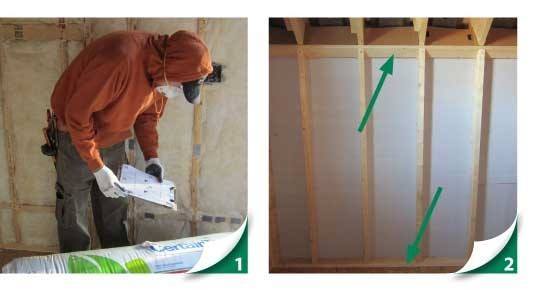
- Verify insulation material is the correct width and R- value.
- Verify that top/bottom plates and a fire-rated rigid backing have been installed.
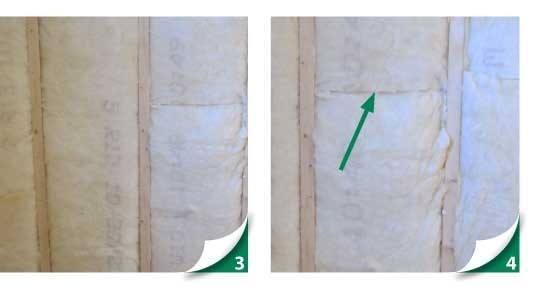
- Friction fit insulation between and parallel to the framing members in full contact with rigid backing, top and bottom plates.
- Ensure ends of insulation are flush and butted together.
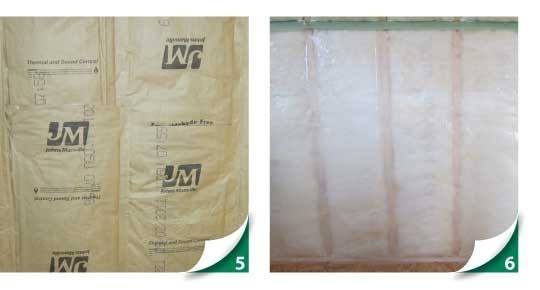
- When using kraft-faced batts: Fasten kraft face tabs of insulation to framing members. Note: no kraft paper overlapping required.
- When using vapor retarder with unfaced batts: Fasten vapor retarder to face of framing members once batts are installed.
Technical Tips for Installing Insulation in Walls
Limited Access and Special Situations
–+Limited Access and Special Situations are areas on exterior walls that may be easier to insulate before covering up. It is advisable to insulate these cavities first/before other wall cavities are insulated.
Stairs and Landings
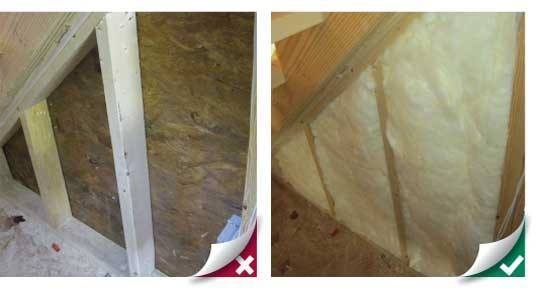
Do: Install insulation to fill the cavity between conditioned and unconditioned space without gaps, voids, misalignments or compression.
Tubs and Showers
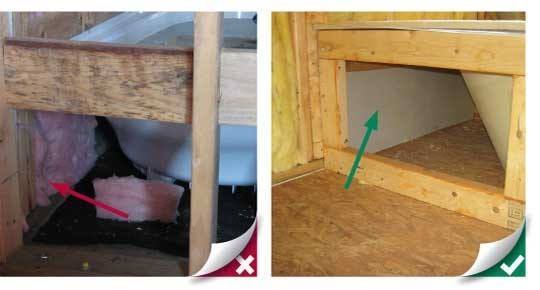
Do: For walls that will not have an interior finish and are separating conditioned and unconditioned spaces, wall cavities are insulated and an interior rigid air barrier is installed.
Fireplaces
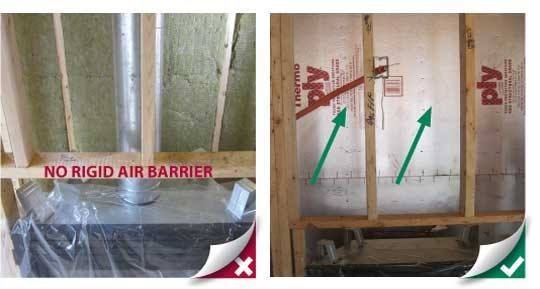
Do: For walls that will not have the same interior finish and are separating conditioned and unconditioned spaces, wall cavities are insulated and an interior rigid air barrier is installed.
Narrow and Odd Cavities
–+Narrow Cavities
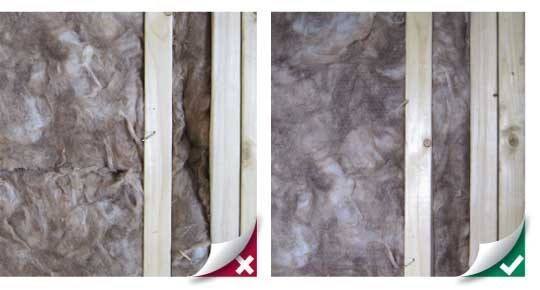
Do: Install insulation to fill the cavity between conditioned and unconditioned space without gaps, voids, misalignments or compression.
Odd Cavities
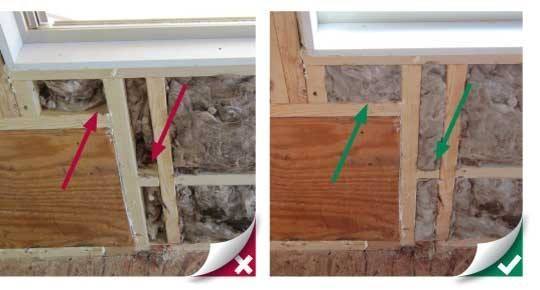
Do: Install insulation to fill the cavity between conditioned and unconditioned space without gaps, voids, misalignments or compression.
Corners
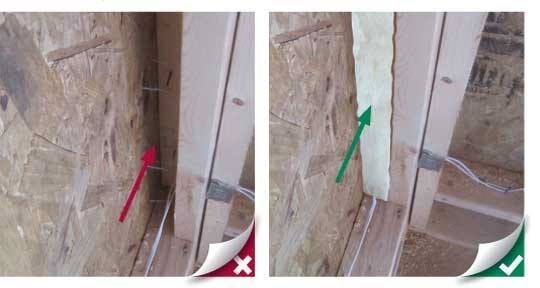
Do: Install insulation to fill the cavity between conditioned and unconditioned space without gaps, voids, misalignments or compression.
Ladder T (Interior/Exterior Wall Intersection)
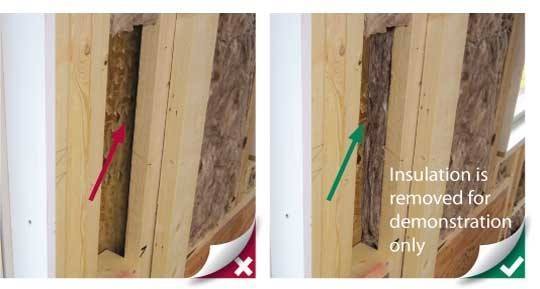
Do: Install insulation to fill the cavity between conditioned and unconditioned space without gaps, voids, misalignments or compression.
Vapor Retarder
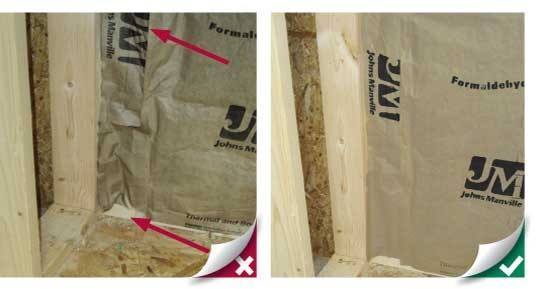
Do: Where a vapor retarder is required, cover the warm-in-winter side of the narrow space with vapor retarder facing.
Windows/Doors
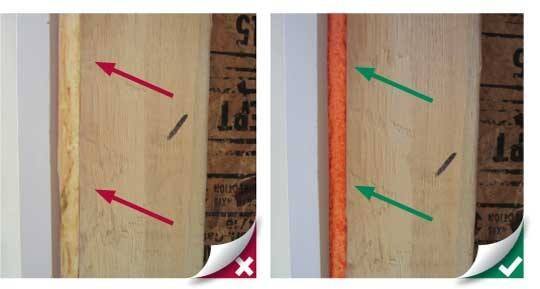
Do: Air seal around windows and doors using backer rod, caulk or low expansion foam. Do not use fibrous insulation or air-permeable foam.
Obstructions and Obstacles
–+Boxes (Electrical, Smoke, CO, etc.)
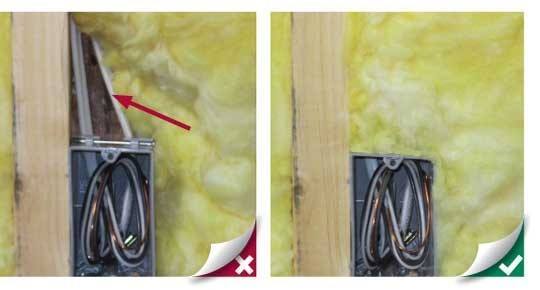
Do: Cut and/or split insulation around wiring and boxes and place a piece of insulation behind the box.
Electrical Panels
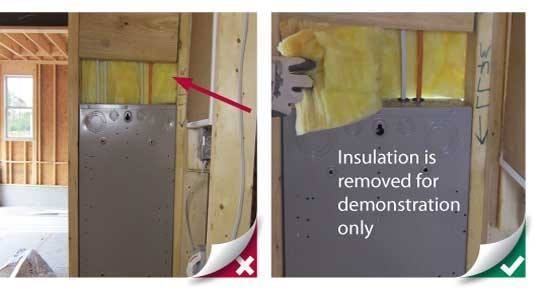
Do: Cut and/or split insulation around electrical panel wiring.
Wires (Electrical, Cable, Security, Low Voltage, etc.)
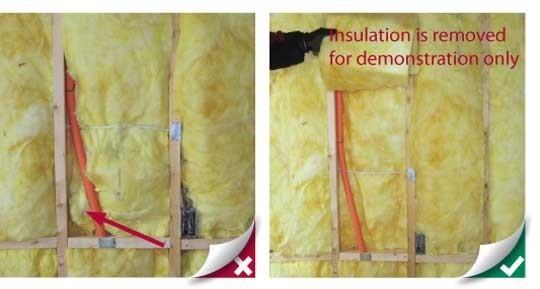
Do: Cut and/or split insulation around wiring.
Dryer / Exhaust
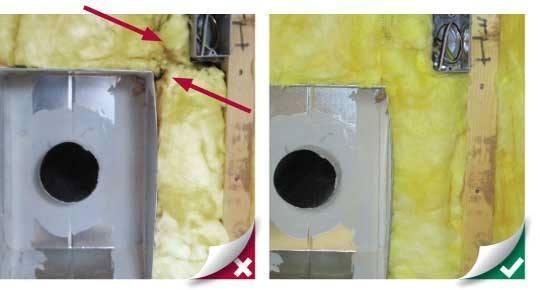
Do: Cut and/or split insulation around exhaust fan boxes, ductwork, wiring and any support bracing.
Pipes and Vents (Water Supply, Plumbing Vents, Gas Lines, etc.)
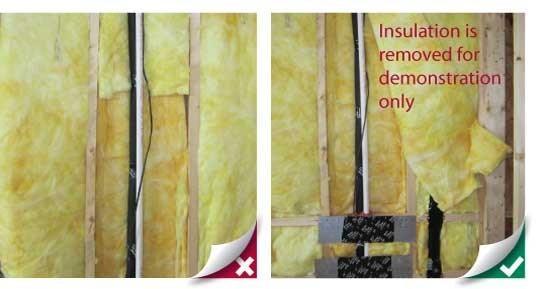
Do: Cut and/or split insulation around pipes.
Rim and Band Joists
–+House-to-Garage Band Joist
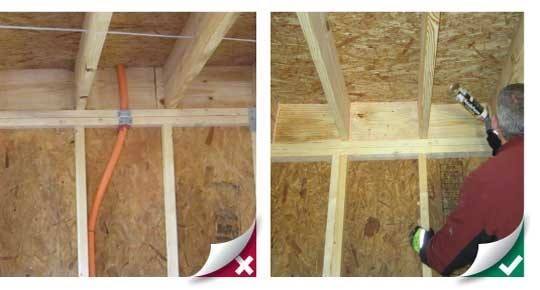
Do: Ensure there is a complete air barrier between conditioned and unconditioned spaces.
House-to-Outside Band Joist
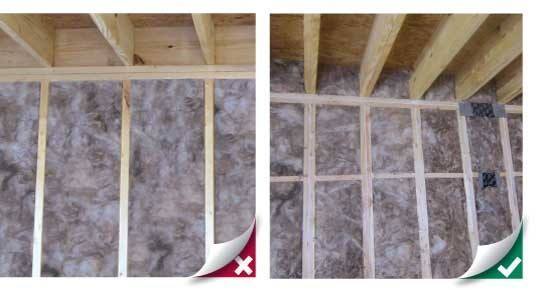
Do: Ensure there is insulation between conditioned and unconditioned spaces.
Conditioned Crawl/Basement-to-Outside Rim Joist
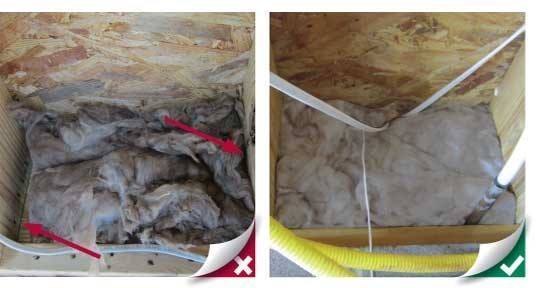
Do: Ensure there is a complete air barrier and insulation between conditioned and unconditioned spaces.
Standard Cavities (Faced)
–+Gaps
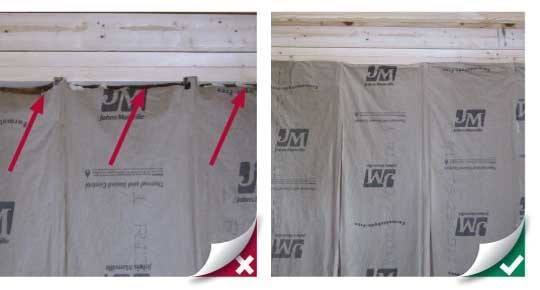
Do: Install insulation to fill the cavity completely between conditioned and unconditioned space without gaps.
Voids
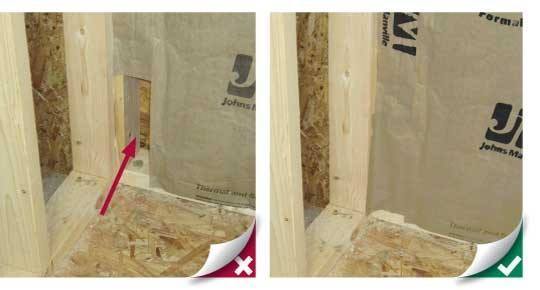
Do: Install insulation to fill the cavity between conditioned and unconditioned space without voids.
Misalignment
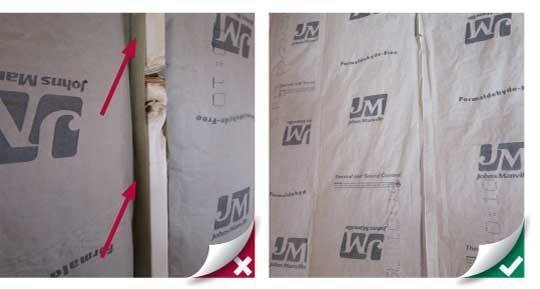
Do: Install insulation to fill the cavity between conditioned and unconditioned space without misalignments.
Compression
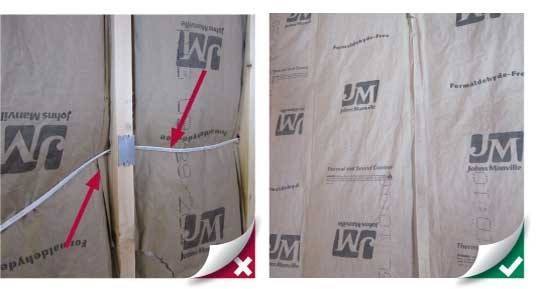
Do: Install insulation to fill the cavity between conditioned and unconditioned space without compression. Split or slit batts around the wires.
Standard Cavities (Unfaced)
–+Gaps
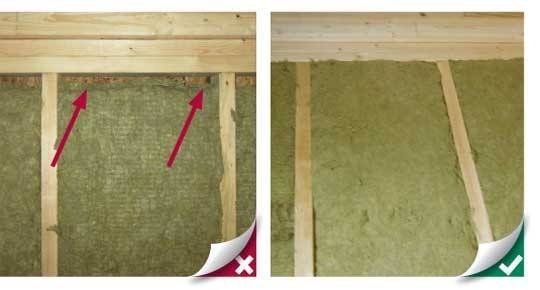
Do: Install insulation to fill the cavity completely between conditioned and unconditioned space without gaps.
Voids
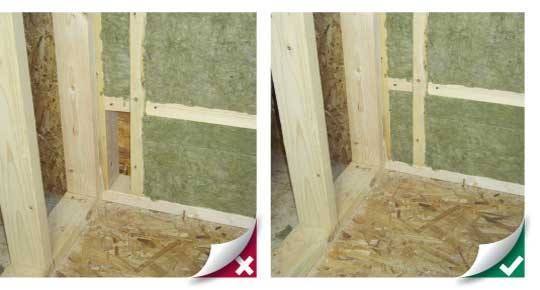
Do: Install insulation to fill the cavity between conditioned and unconditioned space without voids.
Misalignment
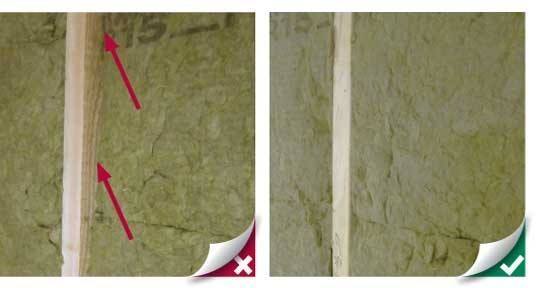
Do: Install insulation to fill the cavity between conditioned and unconditioned space without misalignments.
Compression
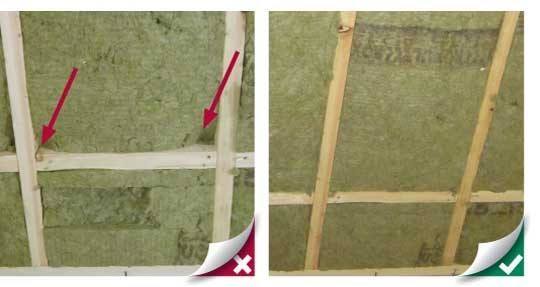
Do: Install insulation to fill the cavity between conditioned and unconditioned space without compression.
